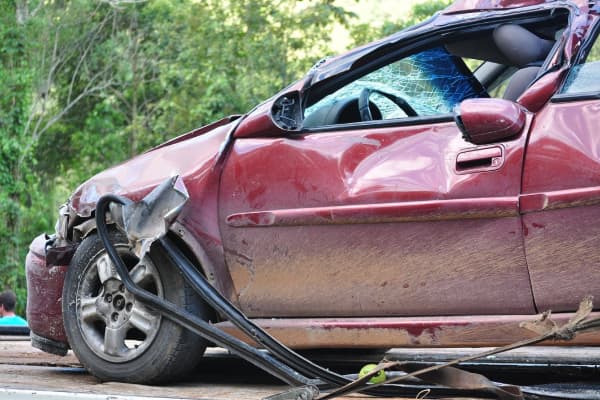The first thing that a person should do regarding their health insurance following a motorcycle accident is make sure their insurance company lines up their private health insurance information with their case and their chart. If this is done, short-term medical bills get paid and the hospital does not rack up a huge bill thinking that the motorcyclist is responsible for it, as opposed to their private health insurance provider.
For this reason, it is crucial to make sure that medical providers have all your private health insurance information. However, it is also important to know that in this kind of scenario, your health insurance coverage or paid sick leave from work can limit your civil recovery from your motorcycle accident.
Recoverable economic damages—which includes past and future wage losses, past and future and medical bills, and the amount of treatment somebody underwent—have a great effect on the way that insurance companies and their insurance adjusters are going to view and value a claim. Somebody who has an injury and receives treatment only once for that injury, for example, will stand out. Insurance companies are going to view that as more significant of a claim than somebody whose injury required 12 weeks of surgery and physical therapy.
Every category of financial expenditure not documented and quantified with bills and medical opinions can significantly impact the value of somebody’s case. The insurance company will want to know about everything—bills that are generated, the amount of treatment that is given, documentation of what injuries occurred, and the significance and life-altering nature of those injuries. Based on this information and related expenditures, the health insurance companies may require that a policyholder reimburse them for paid medical expenses if that person receives a civil settlement from a motorcycle accident claim.
When receiving medical attention after a crash, a motorcyclist is going to be responsible for their co-pays, deductibles, and out-of-pocket expenses. However, the insurance company will live up hopefully to their end of the bargain and pay whatever remains on the bills, usually at a discounted rate because they have negotiated contracts with medical providers that allow for write-offs and other reductions in cost.
Accordingly, when those hospital bills are generated, they are typically reduced down to something like 40, 50, or 60 cents on the dollar compared to the originally listed price. Those are the actual bills the insurance company pays. Then, out of the bills they pay, they what is known as the subrogation interest.
“Subrogation interest” is just a legal way of saying that the health insurance company did not do anything wrong either and they paid all this money out for the medical treatment, so they want to get some of their money back. They are entitled to it by law, although there are certainly a whole bunch of rules and regulations as to how much they are entitled to.
The key to handling this whole process effectively is to have an experienced motorcycle accident lawyer by your side. They could help quantify damages, help get the best recovery possible from the at-fault driver’s insurance, and then negotiate the best deal they can to reduce that subrogation interest from the plaintiff’s private health insurance company.


